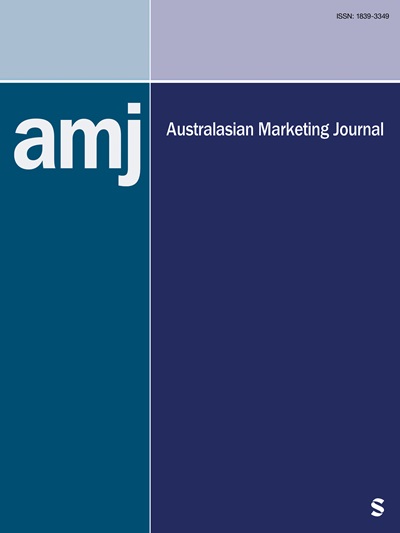Rescuing Unwanted Household Goods: Moving Towards a Circular Economy
IF 3.8
Q2 BUSINESS
引用次数: 1
Abstract
The world’s current ‘linear economy’ business model diminishes finite resources and disregards ongoing detrimental effects being created on our planet. Society needs to do something different, and move to a circular economy for sustainability. Changing existing consumer behaviour to extend the life of currently unwanted household goods can play a beneficial role to increase circularity. Underpinned by the COM-B model of behaviour and associated Behaviour Change Wheel (BCW), this study explores householders’ existing behaviour and views regarding unwanted goods, and perspectives of local government employees/contractors involved in collection of unwanted household goods, to develop recommended interventions to increase circularity. The study offers theoretical contributions as one of the first studies to apply the COM-B model and BCW within the circular economy context and identifies prioritisation/co-ordination as key issues needed in the model. Additionally, practical contributions are provided including recommendations for increased education, incentivisation and enablement (including improved infrastructure); with cost, safety, technology and politics key barriers to increasing circularity of unwanted goods by households. A crucial finding is a need for responsibilisation whereby all stakeholders must accept the specific role each needs to play in a co-ordinated effort to address the challenge of sustainability. The study provides social contribution addressing SDG Goal 12 (responsible consumption) and identifies how various stakeholders can do something different to assist increasing household participation in a circular economy – for the future of humankind and the planet.拯救不需要的家居用品:迈向循环经济
世界目前的“线性经济”商业模式减少了有限的资源,并忽视了对我们星球造成的持续不利影响。社会需要做一些不同的事情,转向循环经济以实现可持续发展。改变现有的消费者行为,延长目前不需要的家居用品的寿命,可以在增加循环性方面发挥有益作用。在COM-B行为模型和相关的行为改变轮(BCW)的基础上,本研究探讨了户主对不需要的物品的现有行为和看法,以及参与收集不需要的家庭物品的地方政府雇员/承包商的观点,以制定建议的干预措施,增加循环性。该研究作为在循环经济背景下应用COM-B模型和BCW的首批研究之一,提供了理论贡献,并将优先次序/协调确定为该模型所需的关键问题。此外,还提供了实际贡献,包括关于增加教育、激励和促进(包括改善基础设施)的建议;成本、安全、技术和政治是增加家庭不需要的商品循环性的关键障碍。一个关键的发现是需要负起责任,所有利益相关者都必须接受各自在协调努力中需要发挥的具体作用,以应对可持续性的挑战。该研究为实现可持续发展目标目标12(负责任的消费)提供了社会贡献,并确定了各种利益相关者如何做一些不同的事情来帮助增加家庭对循环经济的参与——为人类和地球的未来。
本文章由计算机程序翻译,如有差异,请以英文原文为准。
求助全文
约1分钟内获得全文
求助全文
来源期刊

Australasian Marketing Journal
BUSINESS-
CiteScore
14.90
自引率
16.70%
发文量
25
期刊介绍:
The Australasian Marketing Journal (AMJ) is the official journal of the Australian and New Zealand Marketing Academy (ANZMAC). It is an academic journal for the dissemination of leading studies in marketing, for researchers, students, educators, scholars, and practitioners. The objective of the AMJ is to publish articles that enrich and contribute to the advancement of the discipline and the practice of marketing. Therefore, manuscripts accepted for publication will be theoretically sound, offer significant research findings and insights, and suggest meaningful implications and recommendations. Articles reporting original empirical research should include defensible methodology and findings consistent with rigorous academic standards.
 求助内容:
求助内容: 应助结果提醒方式:
应助结果提醒方式:


